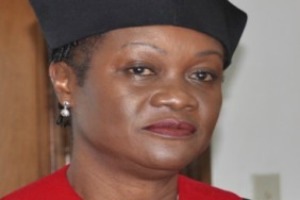On 2nd Thoughts: Gov’t Offices to Get Prepaid LEC Meters
By Othello B. Garblah
Last week, the head of the interim management team at the Liberia Electricity Corporation (LEC), Mr. Thomas Gonkerwon, disclosed plans to start the installation of prepaid meters at all government ministries, commissions, bureaus, authorities, and agencies. This initiative aims to curb the waste and abuse of energy consumption in government offices, promoting greater responsibility.
As it stands, the cost of electricity in Liberia is around $0.22 per kilowatt-hour (kWh), with some customer categories like “Social” potentially paying as low as $0.15 per kWh; this represents a significant decrease from previous higher rates, with the Liberia Electricity Corporation (LEC) implementing new tariffs to reduce costs for most consumers, according to authorities.
Thus, the primary objective of installing prepaid meters is to reduce the wastage and misuse of electricity in government premises. By making government entities accountable for their energy consumption, the initiative seeks to ensure that they pay for what they use, thereby fostering a culture of responsibility.
Over the years, many government offices have deliberately neglected to pay their outstanding electricity bills to LEC. This negligence has significantly contributed to LEC’s poor management and growing indebtedness in relation to electricity consumption.
As of June 2024, Liberia’s debt to the Electricity Company of Ivory Coast had ballooned to US$19,691,647. A substantial portion of this debt stems from the unpaid electricity bills of various government ministries and agencies.
The current use of post-pay meters in government facilities has led to a continuous accumulation of unpaid electricity bills. Government officials have shown little interest in settling these debts, resulting in financial strain on LEC. This lack of accountability has perpetuated a cycle of debt and poor management at the electricity corporation.
A common issue among Liberian public officials is the belief that their public office entitles them to a life of luxury at the state’s expense. They expect the government to provide for all their needs, including cars, generators, and residential accommodations. This mentality extends to their reluctance to pay for utilities, including electricity, as they perceive it to be the responsibility of the citizens to fund their extravagant lifestyles.
A cursory examination of the country’s National Budget reveals that millions of United States Dollars are allocated annually for private generators, vehicles, and even homes for public officials.
Despite some officials residing in their private homes, they still collect allowances for rent from the government. This mindset leaves many public officials to live irresponsibly to the point that most cannot survive for three months outside of public offices.
However, when installed, the prepaid meter could reduce the outstanding debt owed by government ministries and agencies to LEC; promote responsible energy consumption in government offices, enhance LEC’s financial stability by ensuring timely payments for electricity and shift the mindset of public officials towards greater fiscal responsibility.
Meanwhile, lest we forget, the move to install prepaid meters at government offices is a commendable step towards reducing waste and abuse of energy resources. It is important for the government to lead by example in promoting responsible energy consumption.
This initiative, if successfully enforced, will not only alleviate the financial burden on LEC but also instil a culture of accountability within government entities. Through this change, Liberia can move towards a more sustainable and efficient management of its energy resources.




















